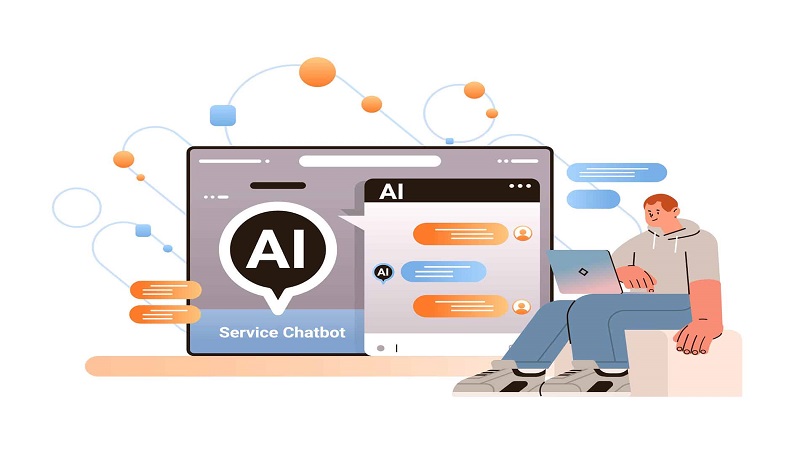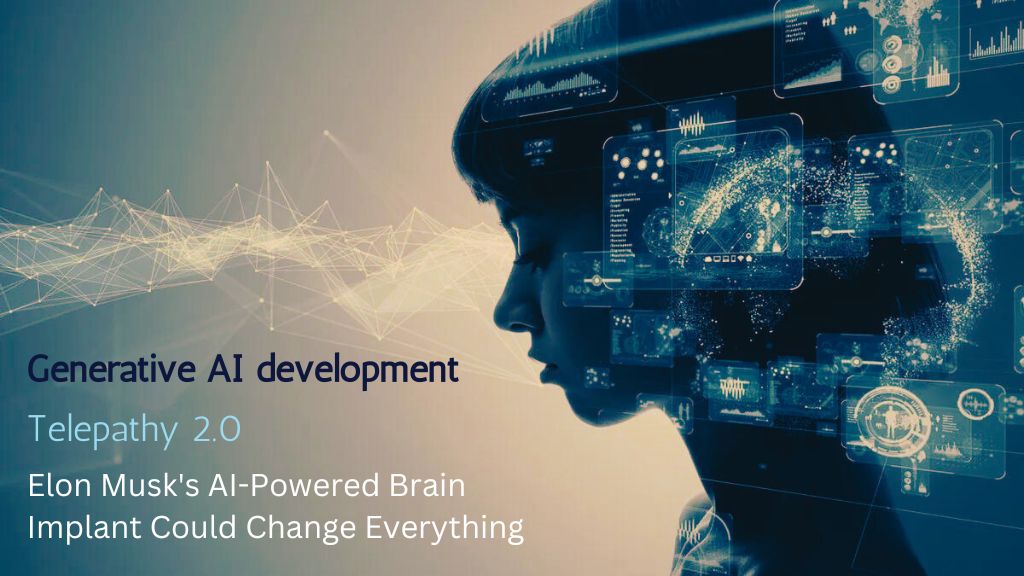Artificial intelligence (AI) enables machines to observe, comprehend, process, and respond to inputs and stimuli in the same manner as humans. Due to the efforts of a few industry leaders, AI has gotten increasingly sophisticated in recent years. According to the 2020 McKinsey Global Survey on Artificial Intelligence (AI), 50% of enterprises use AI in at least one business function.
Artificial intelligence is one of the most exciting and rapidly growing industries in the world today. Every day, new advancements are being made in the field, and it is estimated that the global AI market will be worth an astounding USD 1,394.30 billion by 2029 from USD 387.45 billion in 2023, a compound annual growth rate of 20.1% throughout the forecast period. With so much at stake, it is important to stay up-to-date on the latest AI developments. All over the globe, Artificial intelligence companies are springing up left and right, each with its own innovative products and services.
Recently, at MIT, it was discovered in AI research that artificial technology is able to detect self-reported race from medical images that no human expert could detect. This is just one example of the amazing potential of artificial intelligence and we can definitely expect to see more developments like this in the years to come.
Virtually, every business is being upended by artificial intelligence, automation, and robotics. Whether it’s machine learning, smart applications, appliances, digital assistants, or autonomous vehicles, businesses that do not invest in AI goods and services run the risk of becoming outdated. IDC, a market research company, predicts that the worldwide artificial intelligence business will generate $554 billion in sales by 2024. Numerous firms stand to gain from AI, but just a handful of stocks have AI and automation at the core of their operations.
Top Artificial intelligence Companies in the Field
This technology has numerous applications — from including automated customer service, to predictive sales forecasting, to drug discovery, to even IT companies seeking for the advancement of machine-learning tools, AI can benefit any task that requires large-scale data processing or repetitive human effort. Some of the leading artificial intelligence development businesses in 2023 that apply the technology to a variety of use cases are profound examples of how much development AI has progressed over the years. They are also among the most sought-after employers for AI specialists. In no particular order, here are the top Artificial Intelligence Companies in space.
1. Eightfold AI
Too many workers do not have access to the networking opportunities that have historically facilitated job advancement. The new Career Hub powered by AI at Eightfold attempts to level the playing field. On the basis of an analysis of a billion careers and a million skills, it proposes mentors, projects, and internal positions to each individual within a company, guiding them in the desired path, be it a promotion or a switch to a different role.
In addition to introducing the Career Hub, Eightfold is now collaborating with government clients such as Indiana, Norway, and the U.S. Department of Labor to help citizens upskill and reskill. It also partnered with OneTen, a non-profit organization launched by General Catalyst Managing Director Ken Chenault and Merck Executive Chairman Ken Frazier, whose objective is to help advance the careers of one million African-Americans without four-year degrees over the next decade.
2. Scale AI
When the methods used to train machine learning models are presented with data that deviates from the norm, they frequently fail. Scale AI’s Scale Nucleus is a new tool meant to assist businesses easily pick the finest training data from the start, rather than scrambling to address concerns such as gender bias in findings. One hundred clients have used Scale Nucleus to identify more than 25 million data points; according to Scale AI, Toyota’s annotation throughput increased tenfold in just weeks. The company’s customer list, which includes PayPal, Pinterest, and Etsy in addition to the U.S. Air Force, demonstrates the broad application of its technology.
3. Darktrace
Darktrace Immune System’s self-learning AI thwarts cyberattacks by gaining a grasp of an organization’s machines, processes, and people, and then reacting when it senses abnormalities. In 2021, when the REvil ransomware group exploited a weakness in commonly used IT management software to encrypt firms’ data and demand a ransom, no customer utilizing Darktrace’s technology was affected, according to the company – which had been a big deal to its own processing AI algorithms and to data science itself.
Darktrace has been hard at work expanding its capabilities to include everything from email systems to factory-floor equipment. In May 2021, it announced a partnership that will bring its security measures to users of the Microsoft 365 suite, a key opportunity to expand its customer base of over 6,500. Cambridge, England-based Darktrace nearly quadrupled its AI research workforce in 2021 to stay ahead of future threats.
4. C3.ai
C3.ai offers AI solutions for enterprises to integrate data, construct AI models, produce predictions, and execute pre-built or custom applications. Established in 2009 by Thomas Siebel, the company grew into the juggernaut it is known today. The business filed for an initial public offering (IPO) in 2020, and its last reported annual revenue for C3.ai was $183.2 million in 2021.
The majority of its services are charged on an individual basis, whereas the C3 AI Ex Machina platform begins at $25 per user per month. C3.ai caters to enterprise AI requirements at all levels of digital maturity, which is its defining characteristic. Its entry-level, no-code platform is priced transparently using the software-as-a-service (SaaS) pricing model. Using the company’s data integration and model ops studio, you can also design incredibly complicated apps.
C3.ai’s subsequent services include providing a model-driven, end-to-end application development platform for artificial intelligence, which is what it is actually known for. C3 AI’s Ex Machina supplies data scientists with a no-code AI development platform, which makes programmers and IT specialists workloads more convenient. Customers can even benefit from a collection of pre-built AI applications for industries such as manufacturing, financial services, and government, as well as functional verticals such as supply chain management and customer management.
5. IBM
Watson, IBM’s proprietary artificial intelligence (AI) engine, is utilized in both research and commercial products. It provides AI for intelligent task automation, language processing, and decision-making. Watson was primarily developed to play against people in games such as Jeopardy. Today, Watson can be incorporated into practically all workflows, including human resources, finance, and supply chain management. The company’s last announced annual revenue for 2020 was $73.6 billion, of which around $1 billion was generated by the IBM Watson Health division.
IBM offers a plethora of AI-related services, such as utilizing Watson’s AI lab for research in healthcare, security, and finance. The organization has specialized teams for AI hardware, AI testing, conversational AI, computer vision, explainable AI, and more than ten more activities.
Pre-built Watson applications for supply chain management, healthcare, human resources, corporate operations, and advertising can benefit customers.
Cost for IBM Watson Assistant begins at $140 per month, while Watson Studio pricing begins at $99 per instance. IBM Watson was among the earliest artificial intelligence systems ever created that could respond to questions in plain language. The company provides a large portfolio of ready-to-use Watson-based products, hence decreasing your requirement for AI development and configuration. It also offers both on-premise and cloud deployment options.
6. Salesforce
Salesforce develops AI aimed at customer relationship management (CRM). The company, founded in 1999, has become synonymous with CRM and uses AI for practically every operation because of its custom software development. This is provided as an embedded intelligence layer within the Salesforce platform, driven by Einstein AI. It introduced Salesforce Einstein in 2016 as “artificial intelligence for everyone” and continues to develop the technology while taking ethical factors into account. Salesforce introduced its AI Ethics concept in 2021. Its last reported annual sales for the corporation in 2021 was $21.3 billion.
Einstein Predictions begins at $75 per user per month, whereas Einstein Platform Services are paid on an individual basis. Salesforce enables the flexibility to harness AI in any manner you desire, which is its defining characteristic. You may create a customized Einstein-based platform for your business. Alternatively, you might use Einstein AI solutions for specific CRM tasks such as sales forecasting, engagement rating, and product suggestions.
Artificial intelligence streamlines common CRM tasks on Salesforce, such as determining the optimal moment to send an email to a customer. With a single line of code, the Einstein Platform Services enable developers to integrate AI capabilities such as picture recognition, sentiment analysis, and intent analysis into Salesforce functionalities. Einstein can be utilized for two primary use cases: image recognition for object-related difficulties and natural language processing for text-related problems.
7. Amazon
Amazon has integrated AI into every area of its business, including targeted marketing, search engines for e-commerce, and Amazon Web Services. Alexa is one of the most popular virtual assistants and is already installed in a large number of American homes.
Amazon also offers a variety of AI services to AWS cloud users, such as advanced text analytics, automated code reviews, and chatbots. Amazon just launched a five-year partnership with Johns Hopkins University to revolutionize the way humans interact using artificial intelligence. Amazon remains Post’s top stock pick for 2023 compared to other major tech companies due to its solid AWS fundamentals and e-commerce market share growth, according to Post.
8. Linksquares
LinkSquares employs machine learning to automate the process of contract interpretation, reducing the need to manually track terms and conditions, legal duties, and renewal dates. By doing so, its clients can expedite risk assessments, privacy audits, and other activities that need a comprehensive understanding of the contractual landscape, all without the need for expensive outside counsel.
In 2021, new integrations with Salesforce and DocuSign enabled users of LinkSquares to integrate its AI services into their regular routines. Additionally, the company enhanced its AI with new capabilities tailored to important challenges, such as maintaining compliance with the California Consumer Privacy Act. LinkSquares has processed over 3 million contracts and retrieved over 40 million data points as a result of a growth rate of over 1,000 percent in two years.
9. IronYun
IronYun is a US-based artificial intelligence startup that uses machine learning and deep learning to help companies with video search and analytics. The Vaidio AI Vision Platform from IronYun USA, it adds another layer of intelligence for security, safety, and health to any IP camera. This open platform offers 30 next-generation video analytics with a single purchase that can be integrated into dozens of market-leading systems.
10. In Conclusion
According to a report by Grand View Research, the business, which was worth $62.35 billion in 2020, is projected to expand at a phenomenal rate of 40.2% from 2021 to 2028. These firms are at the forefront of this AI revolution with ground-breaking breakthroughs, practical applications for today’s most pressing business issues, and a steadfast commitment to AI ethics.
Today, artificial intelligence and related fields such as machine learning are among the most sought-after technology. When it comes to AI Technology Spending in 2021, survey trends discovered that vendors are expanding their AI investment. It is only a matter of time before new startups can follow through with these firms and actually add profoundly game-changing capabilities to the system, as these big dogs have done prior.
Paul Sun is a seasoned technology executive and serial entrepreneur with multiple successes in venture capital-funded companies. Paul was involved in AI research at the fifth-generation computer research consortium MCC in the early 80s. Currently, he is the President and CEO of IronYun, a video search, and mining company.
















Leave a Reply